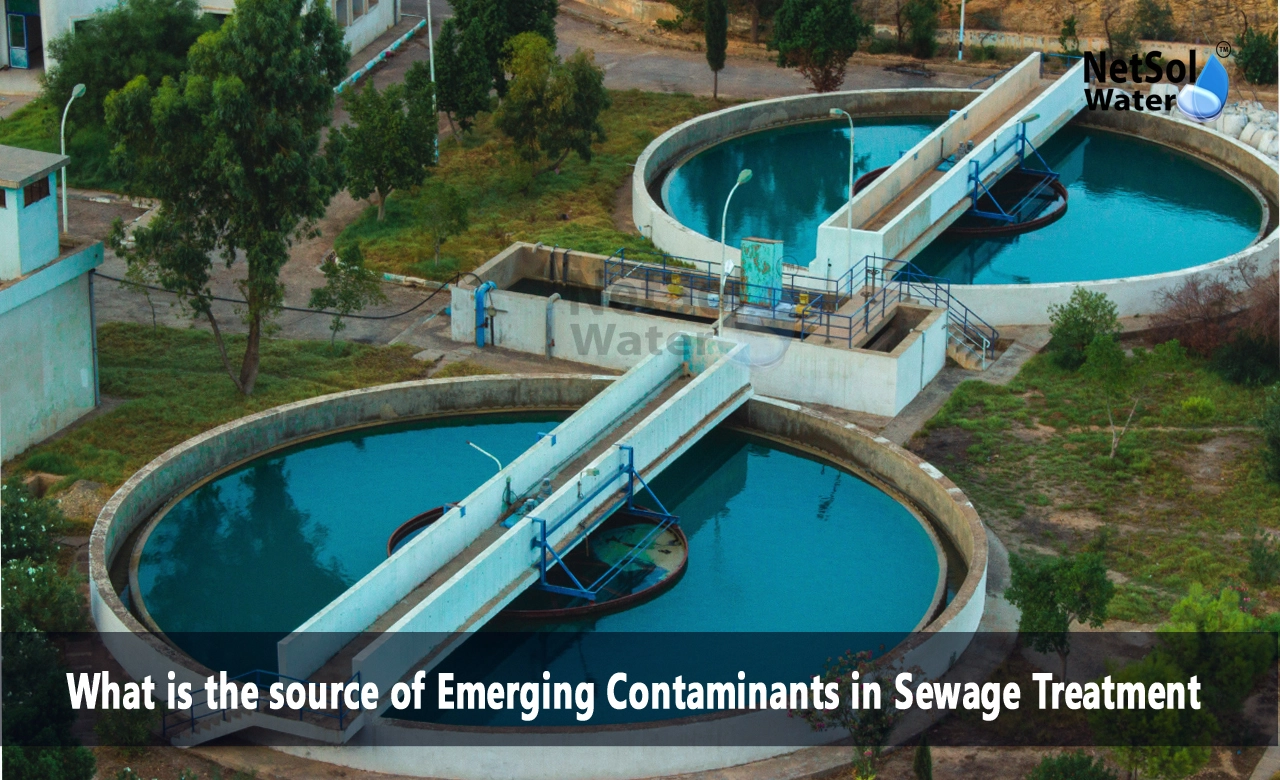In recent years, people have become more worried about finding new pollutants in sewage and how they might hurt the environment and our health. These pollutants, known as emerging contaminants, are different substances that we didn't know about or control in sewage treatment before. They include things like medicines, personal care products, and industrial chemicals.
As the understanding of these contaminants evolves, it's becoming clear that the usual ways of cleaning sewage might not be good enough to get rid of them. These substances can slip through traditional treatment methods and end up in rivers and oceans, which could mess up water ecosystems and even affect the food we eat.
Dealing with these emerging contaminants in sewage treatment is super important for keeping our water safe and the environment healthy.
What is the source of Emerging Contaminants in Sewage Treatment?
These contaminants can come from different places, like:
1- Medicines: Drugs used by people and animals that end up in sewage when we use the bathroom.
2- Personal care products: Chemicals from things like shampoo and soap that wash down the drain.
3- Industrial waste: Chemicals used in factories and manufacturing that get into sewage systems.
4- Farming: Pesticides and other chemicals used in farming that wash into water sources and sewage.
Some common types of emerging contaminants include:
1- Medicines and personal care products (PPCPs)
2- Chemicals that mess with hormones (EDCs)
3- Chemicals that don't break down easily, like PFAS
4- Tiny particles called nanomaterials
5- Plastic pieces called microplastics
Potential Impacts of Emerging Contaminants
There are still some big challenges we need to tackle when it comes to dealing with new pollutants in sewage treatment:
Harming Water Life: Many new pollutants can upset the balance of water ecosystems, harming plants and animals living in them.
Health Risks for People: Some of these pollutants might make us ill or cause issues with our bodies, like affecting hormones or causing cancer.
Making Bacteria Stronger: Too many antibiotics in the environment can make bacteria more resilient and tougher to fight off.
Building up in Food Chains: Certain pollutants can enter animals and plants. As bigger animals eat smaller ones, these pollutants can accumulate and cause problems for us when we consume those animals.
Ways to Clean Sewage from New Pollutants
To deal with the problem of new pollutants, scientists are working on different ways to clean sewage:
1. Advanced Oxidation Processes (AOPs): These methods use strong chemicals to break down pollutants in sewage.
2. Membrane Filtration: Technologies like reverse osmosis and nanofiltration can separate out small pollutants from water.
3. Activated Carbon: A special type of carbon can attract and remove many new pollutants from sewage.
4. Biological Treatments: Special bacteria can eat up pollutants and clean water.
5. Combining Methods: Sometimes, using different methods together can clean sewage better.
Challenges and Future Directions
Even though progress is made in cleaning sewage from new pollutants, there are still some challenges:
1. Monitoring and Detecting: Better and cheaper ways to find and measure these new pollutants in waterneed to be given attention.
2. Costs of Cleaning: Some of the new methods to clean sewage can be expensive, especially for smaller towns.
3. Making Rules: Clear rules about how much pollution is allowed in water and what to do about it.
4. Teaching People: People need to know about these new pollutants and how to stop them from getting into the water.
Constant working, research, and funding on sewage treatment needs to be paid proper attention to make sure that the water is safe for everyone now and in the future. By focusing on these challenges and finding ways to fix them, we can make our environment cleaner and keep people healthy.
Conclusion
The rise of new pollutants in sewage is a pressing concern requiring immediate action. These contaminants threaten aquatic life, human health, and water quality. Traditional sewage treatments may not fully remove them, but advancements in technologies like advanced oxidation, membrane filtration, and activated carbon show promise.
Addressing this issue demands a comprehensive approach. This includes improving monitoring, finding cost-effective treatments, setting strong regulations, and raising public awareness. Continued research, collaboration, and investment are vital for managing these pollutants and protecting our water for generations to come.
Netsol Water is Greater Noida-based leading water & wastewater treatment plant manufacturer. We are industry's most demanding company based on client review and work quality. We are known as best commercial RO plant manufacturers, industrial RO plant manufacturer, sewage treatment plant manufacturer, Water Softener Plant Manufacturers and effluent treatment plant manufacturers. Apart from this 24x7 customer support is our USP. Call on +91-9650608473, or write us at enquiry@netsolwater.com for any support, inquiry or product-purchase related query.



